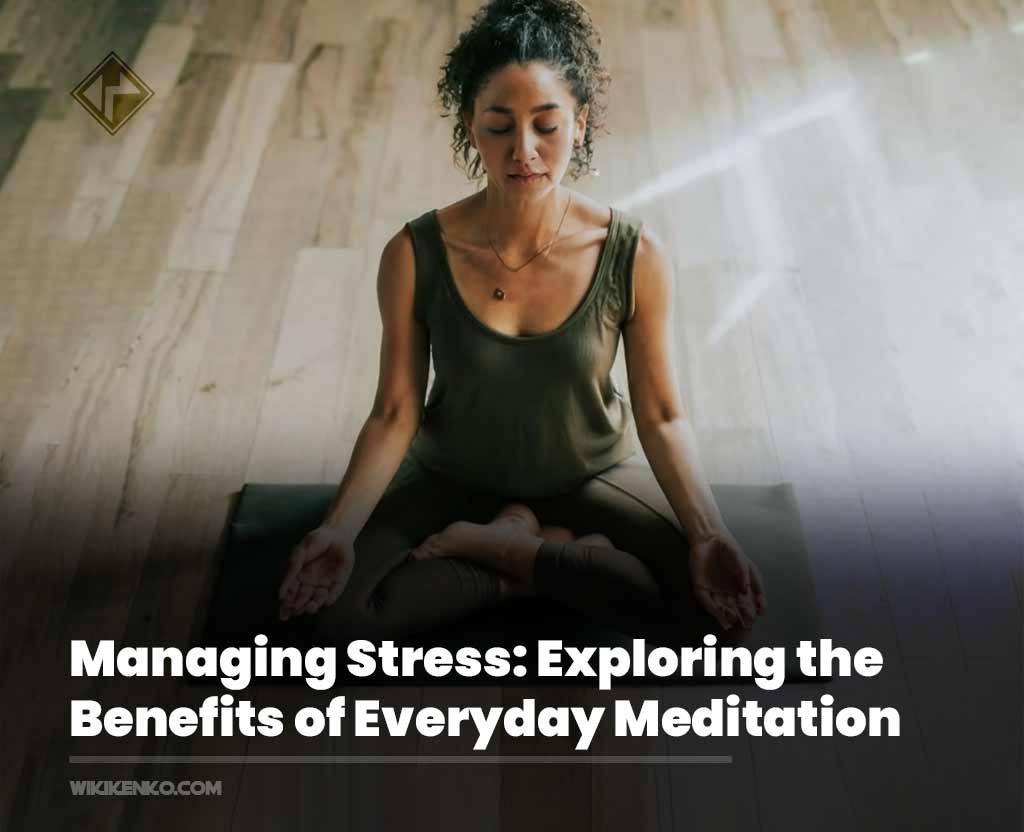|
Getting your Trinity Audio player ready…
|
Ever wondered how to put an end to the relentless thought carousel spinning in your mind? Finding the path to relaxation may seem challenging, but the good news is that just a few minutes a day can make a significant difference.
Celebrities like Hape Kerkeling, Clint Eastwood, Barbara Becker, and Lady Gaga have something in common – they practice meditation. With approximately 16 million people in Germany either engaging in or considering various forms of meditation, the benefits are widely acknowledged.
Understanding Meditation Across Cultures
While meditation is often associated with Buddha statues and singing bowls, its techniques vary across cultures. In Christianity, prayer serves as a form of meditation, and it can be entirely secular, free from religious or spiritual elements.
Regardless of the approach, the common goal is to train the mind, directing our thoughts more towards the present moment. The desired outcome? Increased relaxation, enhanced performance, and better overall health.
The Rising Stress Levels in Germany
The escalating stress levels in Germany are no secret, with one in three women and one in five men reporting persistent stress, as revealed by a study conducted by the Techniker Krankenkasse. Prolonged stress can have detrimental effects, accelerating heart rate, elevating blood pressure, causing digestive issues, and impairing concentration.
The silver lining lies in regular meditation, offering individuals the tools to achieve better balance. The beauty is that one doesn’t need to spend hours in a lotus position to reap the benefits. “Investing a few minutes daily can lead to enhanced quality of life, joy, and inner peace,” says Niko Kohls, a professor specializing in health promotion at Hochschule Coburg.
Taking Small Steps for Significant Success
Kohls advocates for incorporating short meditation sessions into daily life. “Even brief mini-meditations, such as three deep breaths in succession, can improve concentration and help manage emotions, worries, and surrounding stress,” he explains. In the hustle and bustle of everyday life, many forget to pay attention to their own emotions.
Amidst the performance-driven society, focusing on what needs to be achieved often overshadows personal feelings. Meditation techniques can empower individuals to gain better self-control and mindfulness.
For beginners, Kohls suggests starting with a one-minute mindful breathing exercise. Both in-person and online classes offer various options to facilitate the initiation process. The expert notes that most individuals struggle to maintain attention for more than 30 seconds initially, but with practice, they can learn to redirect their focus.
The goal isn’t necessarily to stop thinking altogether but to stay in the present moment and prevent the mind from wandering into the next shopping list or evening TV program, fostering inner calm and averting potentially harmful stress.
Meditation in Professional Mental Health Practices
Susanne Baumgartner, a specialist in psychiatry and psychotherapy, and medical director of Sonnenpark Lans, a rehabilitation facility for individuals with mental health issues, incorporates meditation into her practice. While meditation doesn’t replace psychotherapy, Baumgartner highlights its role in helping individuals become more accepting and aware of their thoughts without judgment.
Many individuals in rehabilitation can articulate their problems and propose solutions but struggle with implementation. Fear plays a crucial role, and when facing potential changes, people tend to anticipate difficulties.

Meditation can assist in approaching situations without preconceptions and judgments, allowing for greater freedom. If anxiety and stress are left unchecked, they can control one’s life, leading to potentially harmful consequences.
Beyond Mental Health: The Physical Impact of Stress
Stress doesn’t merely affect mental health but also impacts the nervous, hormonal, and immune systems. Chronic stress triggers the release of cortisol, a stress hormone, accelerating cell aging by inhibiting repair enzymes. Regular meditation has been shown to reduce stress and cortisol levels, slowing down the aging process at a cellular level.
A clinical study in 2022 suggests that mindfulness exercises can significantly reduce anxiety. However, Baumgartner advises individuals with anxiety disorders to be aware that meditation may bring underlying fears to the surface during moments of calm.
Anxiety patients often seek constant control through work, activities, or busyness to manage their anxiety. For those with psychotic conditions, Baumgartner generally discourages meditation.
Choosing the Right Meditation Technique
Both Baumgartner and Kohls emphasize that the effectiveness of meditation isn’t contingent on the technique used. Whether through yoga, guided meditation, breathing exercises, sitting, lying down, or even mindful jogging, individuals are encouraged to find a method that suits them. The positive effects experienced during meditation often prompt individuals to extend their practice naturally.
Dispelling the Myths: A Realistic Approach to Meditation
Despite the recent surge in popularity, Kohls believes that the narrative around meditation has been overly positive, creating unrealistic expectations. It’s not a one-size-fits-all solution or a quick fix for all ailments. Quality assurance is crucial, especially in the age of the internet, where advanced meditation techniques may be accessible without proper guidance.
Kohls recommends enrolling in courses with knowledgeable instructors, emphasizing the value of courses offered by health insurance providers.
In conclusion, while Clint Eastwood finds meditation a means to gather his thoughts, you don’t have to commit to daily sessions like the Hollywood star. Start with a few quiet breaths. Perhaps right now?
Meditation Tips for Beginners
- Patience is Key: Meditation is a skill that improves with practice. Be patient with yourself and explore different techniques.
- Body Awareness: Meditation enhances your body awareness. Pay attention to signals like hunger, thirst, fatigue, or the need for fresh air.
- Experiment: There’s no one-size-fits-all approach to meditation. Experiment with various techniques to find what resonates with you.
- Avoid Perfectionism: Meditation is not about imposing strict rules on your psyche. Playfully explore the capabilities of your mind.
- Dealing with Thoughts: It’s natural for thoughts to arise during meditation. Patience and persistence are crucial in redirecting your focus to the present moment.
Meditation is a journey, not a destination. Embrace the practice, and with time, experience the transformative effects it can bring to your life.
Original source: This information was Initially covered by www.apotheken-umschau.de and has been translated for our readers.










